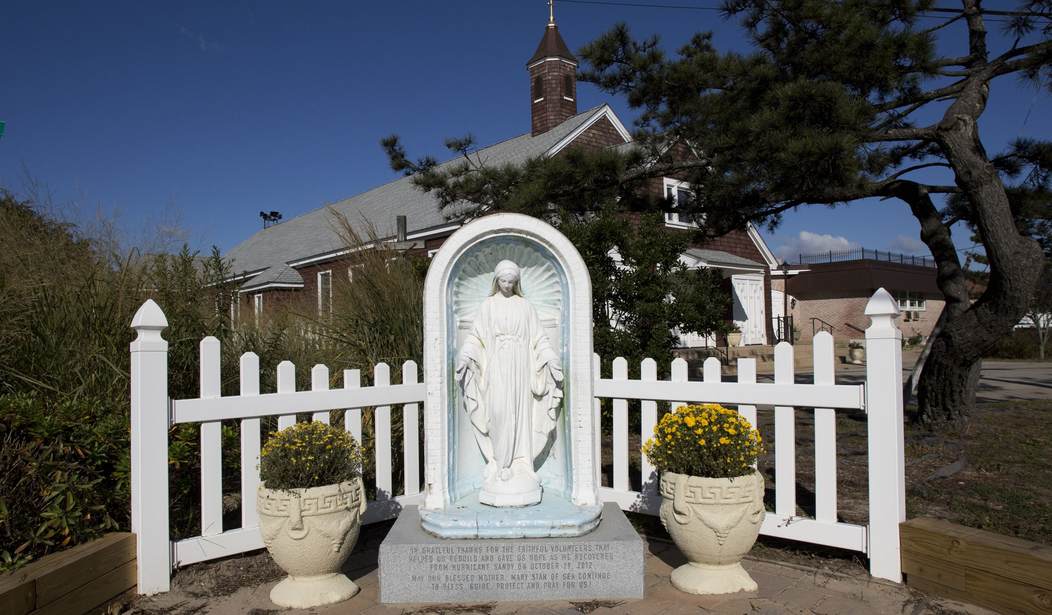The American left has plenty to complain about these days. Liberals who support standard Democratic Party platform planks such as legal abortion, more gun control, and public schools over private schools or homeschooling, have been drenched in bad news coming from various Supreme Court cases and polls showing a widespread rejection of their agenda in the coming elections. There is plenty of blame to go around, at least in their minds. The conservative majority on the Supreme Court is near the top of the list of villains for many. Conservative elected officials passing laws they disagree with are also common targets. And then there’s always the Bad Orange Man who can apparently be blamed for virtually anything.
But at MSNBC’s website, Zeeshan Aleem has a different target in mind. Rather than blaming any one person or group of people for all of these woes, he’s found a more pervasive evil that is the fountain from which all of these disasters are flowing. You see, the real problem is Christianity. Yes, it’s embodied in the words and actions of many public figures who adhere to the faith, but it’s the underlying religion itself that’s poisoning the communal well. And the only answer is a new era of “energetic atheism” that Aleem would like to see identified as “communitarian atheism.” That is how the world can combat this trend toward a despotic “Christian theocracy,” enacted by “Christian nationalists,” permanently taking over America.
There are two pressing crises tied to the state of religion in America today. A new style of atheism can help answer both of them.
The first crisis is rooted in an excess of religion. Christian theocracy is not far-off specter but an emerging reality in America. Fueled by a radically reactionary Supreme Court that is two-thirds Catholic, Thomas Jefferson’s already-dilapidated and graffitied “wall of separation” between church and state is crumbling. The overturning of Roe v. Wade means the lives of women across the country are being held hostage by a conservative Christian conception of life. Kennedy v. Bremerton permits school officials to publicly pray and make students feel pressured to join in. Carson v. Makin allows taxpayer dollars to be used to fund religious education.
This is a very long essay, so you’re to be forgiven if you don’t want to invest the time to try to sort it all out. But the underlying premise of the twin “crises” facing America today really deserves a trip out to the commonsense woodshed. Aleem begins by claiming that an “excess of religion,” specifically Christianity, is at the heart of the problem. Presumably, some other religions might be okay, but not Christianity. Aleem himself was raised as a Muslim before being “freed” of that and turning to atheism.
But after defining the problems with an excess of the Christian religion, the author unironically identifies the second crisis as “the decline of religion.” He claims that Christians are gaining more and more power in the courts and in legislative bodies and using that leverage to somehow oppress everyone else. But at the same time, he notes that organized religion is in decline and fewer people identify with major Christian sects or regularly attend services. This part of the essay becomes particularly muddled, but Aleem seems to be suggesting that if more people of faith spent more time in church and in each other’s company, they might realize that they shouldn’t be passing laws that other people disagree with (or something like that, anyway).
Right up front, the author takes pains to point out that the Supreme Court is now “two-thirds Catholic.” What this has to do with their rulings on anything from abortion to gun rights or vaccine mandates isn’t specified, but it is clearly suggested that they are conspiring against us in some fashion. (Sonia Sotomayor is one of the Catholics on the court so the secret conspiracy is not currently voting in lockstep.) So obviously action is called for.
But what would a spreading adoption of some new form of atheism accomplish? Aleem suggests that a well-organized atheist movement could “help agitate for and finance a secularist equivalent of the Federalist Society.” You can see yet again how the Supreme Court is at the bottom of these crises in the minds of liberals since the Federalist Society has famously worked for years to place more conservative jurists on the bench. The author claims that this new, atheist society would act as a “bulwark against theocracy.” It’s an interesting idea, but how would such a group be substantially different from existing liberal organizations that permeate the country today?
Aleem also suggests community “study groups” to create spaces for atheists to share their values without “spewing venom” at organized religion. As I said, it’s a long essay and he goes on at length from there. But I would leave this topic with one question for the author. Isn’t the fundamental idea behind atheism a rejection of the “organized” nature of the major churches and their shared belief in the power of God, however you define that being? Building an organized movement of atheists sort of sounds like a central planning committee for anarchists, doesn’t it?








Join the conversation as a VIP Member